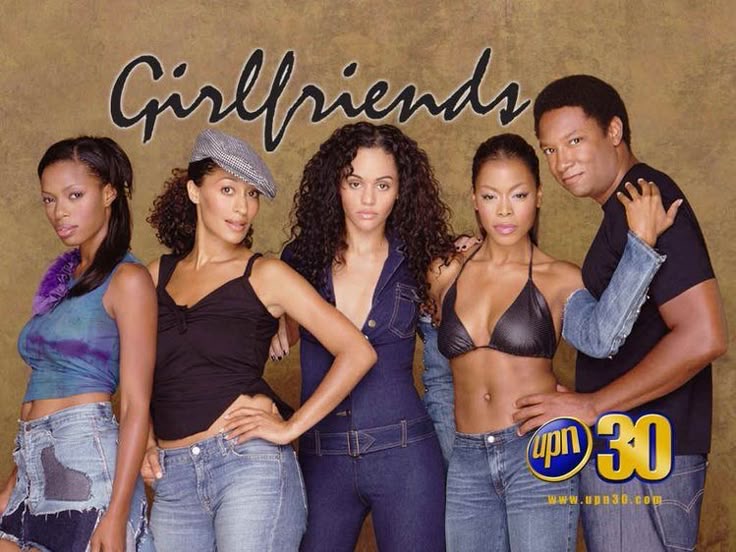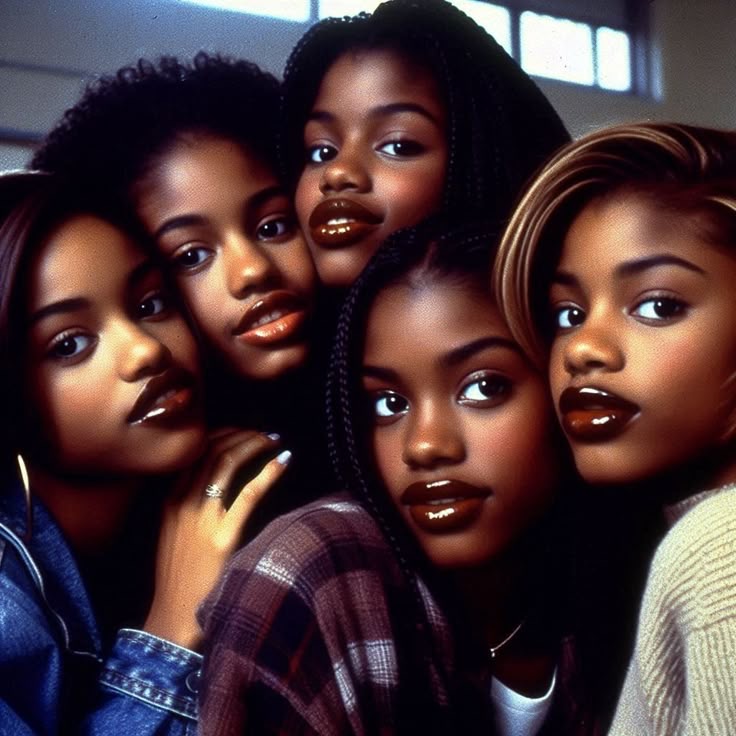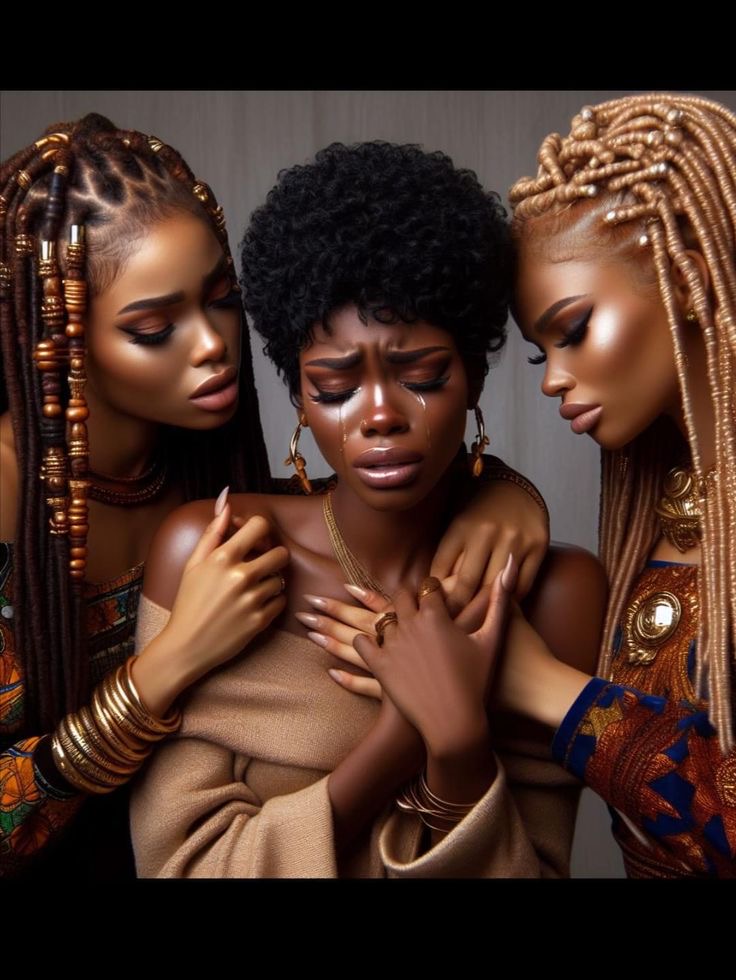The Complex Dynamics Between Toni and Joan in Girlfriends

Friendships can be complicated, but few TV friendships were as messy, emotional, and relatable as Toni and Joan’s in Girlfriends. Over the years, Toni has been painted as the selfish, materialistic villain, while Joan is seen as the self-sacrificing people-pleaser.
But is that really the whole truth? In this post, I’ll be breaking down their dynamic, what drew them together, and whether Toni was truly the problem—or just misunderstood. Let’s get into it!
The friendship between Toni Childs and Joan Clayton in Girlfriends is one of the most layered and compelling relationships in television history. Their bond, shaped by their vastly different upbringings, reveals deeper truths about class, trauma, and the pursuit of stability. While Toni is often criticized for being materialistic and self-serving, a closer look at her background and choices tells a more nuanced story. Likewise, Joan’s need for validation and people-pleasing tendencies stem from her upbringing. By examining both women’s family dynamics and life choices, we can better understand their actions and the ways they both uplifted and hurt each other.
Toni Childs: The Pursuit of Stability and Wealth
Toni Childs is often viewed as the “gold-digger” of the group, but her desire for financial security stems from her turbulent upbringing. Born to a recovering alcoholic mother, Toni was raised primarily by her older sister, who took on a maternal role in her life.
Her family’s struggles with poverty shaped her outlook—unlike her friend Mya, who found joy despite her modest means, Toni saw her childhood circumstances as shackles. She didn’t romanticize struggle; she wanted out. Her decision to leave Fresno and build a new life in California was a direct rebellion against the limitations placed on her by her upbringing.
One of Toni’s biggest struggles is understanding boundaries, which stems from her childhood. Because her sister raised her in place of her mother, the natural parent-child dynamic was already blurred. Her sister expected gratitude, but Toni never asked to be raised by her. As an adult, this confusion around boundaries seeps into her relationships, making it difficult for her to navigate friendships and romantic partnerships in a healthy way.
Toni’s beauty was not just an asset; it was a means of survival. She understood early on that financial stability could offer her the freedom she never had as a child. Critics often reduce her character to a woman who seeks rich men, but in reality, Toni’s choices are deeply rooted in trauma. Her desire to marry well wasn’t just about status—it was about ensuring that her future children never experienced the instability and pain she endured.

Toni and Boundaries
Joan Clayton: The People-Pleaser Seeking Validation
Joan, in contrast, grew up in a structured and privileged household, yet she still carried deep emotional wounds. Her parents were divorced, and while they both remained present in her life, their focus was often on themselves rather than on her emotional needs.
Her mother was a career-driven woman who had multiple marriages, placing her aspirations ahead of motherhood. Her father, on the other hand, sought freedom from what he saw as an overly structured marriage. In his pursuit of self-liberation, he neglected the emotional impact of his actions on Joan.
Joan’s Savior Complex
As a result, Joan developed a savior complex—constantly seeking validation by being the “perfect” friend, daughter, and girlfriend. She frequently prioritized others over herself, yet she became resentful when people didn’t reciprocate in the way she expected.
Joan’s biggest weakness was her inability to set boundaries. She often found herself overextending in friendships, only to feel hurt when her efforts weren’t appreciated. Her friendship with Toni was one of the most intense examples of this dynamic—she gave, she supported, but deep down, she also expected something in return: loyalty, gratitude, and validation.

Why Toni and Joan Were Drawn to Each Other
Despite their differences, Toni and Joan were deeply connected. Their friendship mirrored aspects of their own family dynamics:
• Toni, in many ways, reflected Joan’s mother—independent, driven, and prioritizing her own needs over others. Joan was used to this dynamic, which may explain why she tolerated Toni’s behavior for so long.
• Joan, on the other hand, was similar to Toni’s older sister—nurturing, critical, and always trying to steer Toni in the “right” direction. This created a power dynamic where Joan often felt responsible for Toni, and Toni resented being controlled.
They needed each other because, at their core, they were both searching for a sense of home. Toni needed someone who could give her the emotional security she never received from her mother, while Joan needed someone who would validate her worth.
The Conflict: Why Their Friendship Fell Apart
While Toni and Joan’s friendship was strong, it was also volatile. The very traits that drew them to each other became the source of their biggest conflicts.
• Toni’s need for financial security clashed with Joan’s idealism about relationships and friendships. Joan saw Toni’s pursuit of wealth as shallow, while Toni saw Joan’s emotional neediness as exhausting.
• Joan expected Toni to conform to her standards of loyalty, but Toni operated on her own terms. This led to betrayals, misunderstandings, and resentment that built up over time.
• Toni intentionally hurt Joan multiple times, from dating her ex to nearly sleeping with her boyfriend. Joan, while flawed, never deliberately inflicted pain on Toni in the same way.
Ultimately, their friendship fell apart because neither could fully give the other what they needed. Joan needed emotional consistency, while Toni needed complete acceptance of who she was—flaws and all.

Final Thoughts: Understanding Toni Beyond the “Gold Digger” Label
Toni’s story is one of survival, resilience, and the pursuit of security. She is not just a woman obsessed with wealth—she is a woman who grew up in instability and vowed to never return to that life.
Joan, on the other hand, is a woman seeking validation and struggling with boundaries, shaped by parents who put their own needs above hers.
Their friendship was beautiful, complicated, and ultimately unsustainable. But rather than reducing Toni to a shallow gold-digger and Joan to a martyr, it’s important to recognize the deeper motivations driving their actions.
At the end of the day, Girlfriends was a show about Black women navigating love, career, and friendship—flawed but real, messy but meaningful. And perhaps that’s why their friendship, despite its many ups and downs, remains one of the most talked-about dynamics in TV history.
What Do You Think?
Do you believe Toni was unfairly criticized for wanting financial security? Was Joan justified in her resentment toward Toni, or did she also have toxic tendencies? Let’s discuss!
With love,
Mo
#Girlfriends #ToniChilds #JoanClayton #BlackWomenOnTV #FemaleFriendships
If you want to follow my journey or just want to chat, you can find me on social media. I’d love to connect with you!
• Facebook: Follow me on Facebook (https://www.facebook.com/profile.php?id=100091134962245&mibextid=LQQJ4d)
• X: Join me on X ( https://x.com/morgathac/status/1761961898717622289?s=46)
• Instagram: Follow my Instagram (https://www.facebook.com/profile.php?id=100091134962245&mibextid=LQQJ4d)
• TikTok: Check out my TikTok (https://www.tiktok.com/@demandmoexhilaratedytube?_t=ZP-8tllw4Y8J5z&_r=1
Comments
Post a Comment